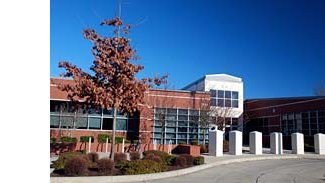Whenever there is a storm or other type of disaster in Oregon, questions come to us about financial and other types of assistance. We hear “Who is going to help us?” and “How can we get state or federal assistance?”
I would love to be able to tell you that the government has enough money to fix everything for everyone but you know that’s not true. We do what we can under the laws that we have and that includes a process that must be followed. Having enough home and flood insurance is the best way to protect your property.
Response to a disaster begins at the local level. Each town, city and county is prepared to assist their citizens immediately during an event. If the disaster uses up all of their resources, county officials can ask the Governor for an emergency declaration. If the Governor agrees, state resources are provided, coordinated by Oregon Emergency Management (OEM), to assist the counties. If the disaster becomes a burden on the state, the Governor may ask the President for a federal declaration.
This is a simplified explanation of the process. There is always a lot of paperwork involved, information must be gathered and rules followed. Unfortunately when the storm hits you, it seems like everything takes forever.
Remember - Your first responders are working diligently to make things safe and secure and your local officials are following procedures to get you the assistance you need. Follow instructions from your local emergency managers and be prepared for the next one – it is still winter.
Wednesday, January 27, 2010
A Message from DHS:
The images from Haiti continue to illustrate the devastating impact of natural disasters. The U.S. Department of Homeland Security (DHS) is working hard to support the international response effort to help our neighbors recover from this tragedy.
Emergency preparation may not be possible for every individual, or for every type of emergency, but we cannot overstate the importance of preparedness planning. The U.S. federal government, along with many of our partners in the private sector, provides abundant resources for preparing your family for disasters.
We encourage you to utilize these resources and prepare your family to the fullest extent you can. If you live in a region prone to earthquakes, you are probably aware of the risks they pose. Knowing the risks within your community is the first step in evaluating the preparedness level of your family. DHS encourages you to research the potential risks in your area, evaluate how you should best respond, and prepare your family accordingly. Forethought and planning will help you make sound decisions during a crisis and keep your family safe.
Consider the following tips for preparing your family for emergencies: Visit the Federal Emergency Management Agency (FEMA) website and click any state to see the common local risks and how to best respond. Find out what your community is doing to prepare for emergencies and volunteer. Visit the websites of organizations and government programs like Ready.gov, Citizen Corps, and the National Safety Council and utilize the resources they provide. Subscribe to the free Citizen Corps news email service for community preparedness news and updates. Visit the website of the Home Safety Council to learn how you can make your home safer for you and your family.
Take classes in lifesaving skills, such as CPR/AED and first aid, or in emergency response, such as CERT. Work with parent-teacher organizations to discuss how you can support their emergency plans and drills. The Office of Safe and Drug Free Schools and Readiness and Emergency Management for Schools will have information on school emergency preparedness and response. Help children prepare for emergencies at their own pace and maturity level. Monetary contributions remain the best way to support the relief efforts in Haiti.
Emergency preparation may not be possible for every individual, or for every type of emergency, but we cannot overstate the importance of preparedness planning. The U.S. federal government, along with many of our partners in the private sector, provides abundant resources for preparing your family for disasters.
We encourage you to utilize these resources and prepare your family to the fullest extent you can. If you live in a region prone to earthquakes, you are probably aware of the risks they pose. Knowing the risks within your community is the first step in evaluating the preparedness level of your family. DHS encourages you to research the potential risks in your area, evaluate how you should best respond, and prepare your family accordingly. Forethought and planning will help you make sound decisions during a crisis and keep your family safe.
Consider the following tips for preparing your family for emergencies: Visit the Federal Emergency Management Agency (FEMA) website and click any state to see the common local risks and how to best respond. Find out what your community is doing to prepare for emergencies and volunteer. Visit the websites of organizations and government programs like Ready.gov, Citizen Corps, and the National Safety Council and utilize the resources they provide. Subscribe to the free Citizen Corps news email service for community preparedness news and updates. Visit the website of the Home Safety Council to learn how you can make your home safer for you and your family.
Take classes in lifesaving skills, such as CPR/AED and first aid, or in emergency response, such as CERT. Work with parent-teacher organizations to discuss how you can support their emergency plans and drills. The Office of Safe and Drug Free Schools and Readiness and Emergency Management for Schools will have information on school emergency preparedness and response. Help children prepare for emergencies at their own pace and maturity level. Monetary contributions remain the best way to support the relief efforts in Haiti.
Subscribe to:
Comments (Atom)





